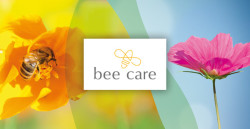A Visit to the Bayer Bee Care Center Headquarters

Farm Chemicals International’s sister publication, American Vegetable Grower, had the opportunity to view Bayer CropScience’s Bee Care initiative firsthand in Monheim, Germany. Rosemary Gordon, managing editor of the publication, is currently participating in Bayer’s AG Vegetable Future Forum, which began with a tour of the company’s global headquarters. One building on the headquarters’ grounds was home to a sign that read: “Our purpose: propelling farming’s future.”
One way the company is striving to meet that goal is with its new Bayer Bee Care Center, which opened in Monheim in June. The idea behind the Center is to bring together the activities within Bayer which focus on bee health and safety.
A second facility is slated to open in Research Triangle Park, NC in July 2013. At the North American Bayer Bee Care facility, graduate students will have an opportunity to collaborate with USDA and other institutions on beekeeping and pesticide interactions, explained Annette Schuermann, head of the Bayer Bee Care Center in Monheim.
According to the company, the facility will include a full laboratory and research apiary, as well as honey extraction and workshop space needed to conduct bee health research and to support a practical apiculture. The research will focus on Integrated Pest Management for the multiple factors affecting bee health.
As honey bee pollination has been said to be indirectly or directly responsible for one-third of our food production, it is critical that honey bees remain healthy, said Schuermann and Dr. Christian Maus, global pollinator safety manager. They both mentioned the varroa mite as one of the main causes of honey bee colony mortality.
As the varroa mite sucks bees’ hemolymph it, in turn, transmits viruses, explained Schuermann. “The varroa mite transmits up to 20 additional viruses, which is why it is so detrimental,” she added.
Other factors can impact honey bees as well, including unfavorable weather conditions and the incorrect use of pesticides. “Bees live in a very complex environment,” explained Schuermann, “and that is what makes it so hard to determine a solution.”
Another reason for the problem with bee health is that not all beekeepers are alike. For example, Schuermann said one beekeeper can do everything right, keeping everything clean, but if a neighboring beekeeper does not follow such strict standards and has a mixture of pests and disease in his hive, those bees can transmit disease to bees in the healthy habitat. “If the healthy hive cannot defend itself from the other hive, then it can collapse,” she added.
New Technology
Currently, Bayer is working to develop an entrance control product to stop the transmission of a pathogen or virus from entering the hive. When a bee brings a pathogen back to the hive, explained Schuermann, the product will kill the pathogen before the bee enters.
Additional work is being done to determine the impact of crop protectants on honey bees, honing in on virtually all crops as well as application techniques for insecticides. According to Dr. Maus, the company has started a global survey project in cooperation with a university that will be ongoing for the next two years and will look at all existing crops to determine the pollinator of each crop, any relevance to beekeeping, any managed pollination, etc.
Maus also said research is being conducted to find bee-friendly application techniques. An ongoing project with other stakeholders involves looking at ways to apply pesticides that will minimize the exposure to bees, he explained. One of those techniques involves spray technology.
Together with Syngenta, Hohenheim University in Germany, and manufacturers of application components, the use of Dropleg application technology is being evaluated. Maus explained how the Dropleg technology works.
“On the sprayer equipment, normally the spray bar is above the crop, and it sprays the canopies from above,” he said. “With the Dropleg equipment, its hook extensions reach down into the crop and spray it laterally or from below.” The end result, he said, should reduce any impact on honey bees.
Bill Brim of Lewis-Taylor Farms in Tifton, GA, who also is participating in the Forum, said that Bayer is “right on target” with its work focusing on the health and safety of bees. “I’m glad to see Bayer is taking up the initiative to do something about bee health,” he added.
For more information on Bayer’s Bee Care Program, click here.





